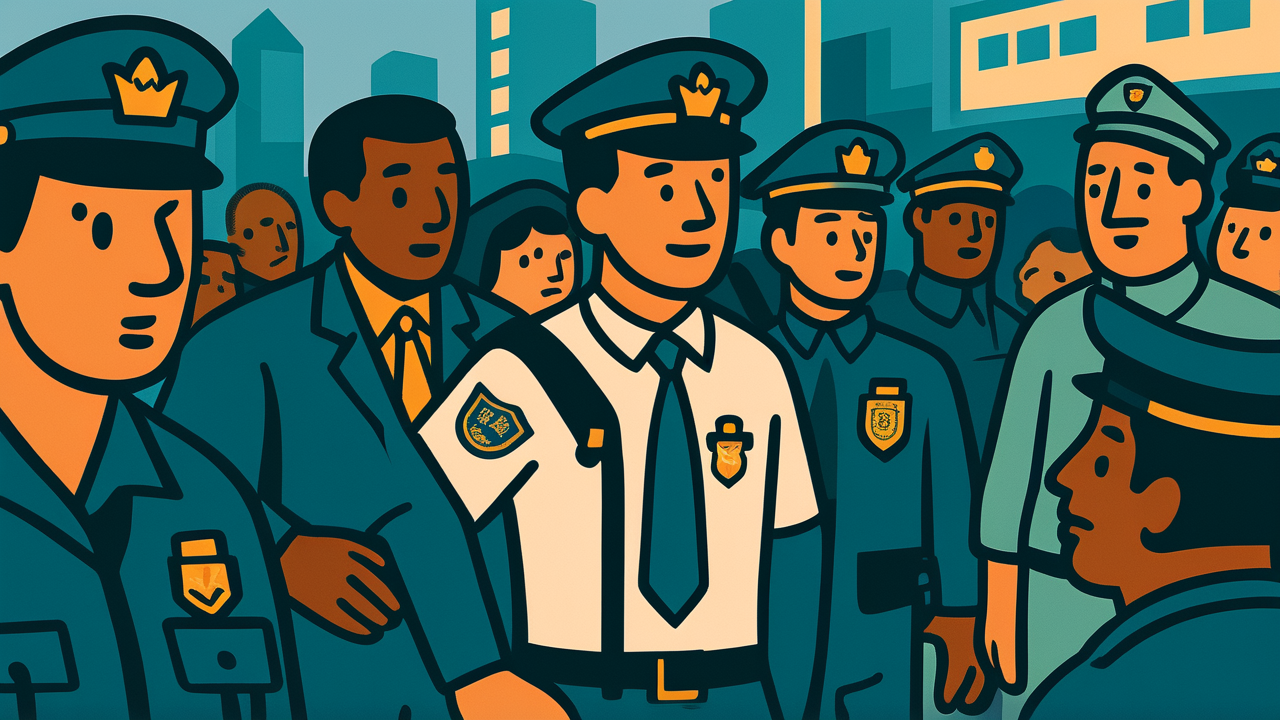[Disclaimer] This article is reconstructed based on information from external sources. Please verify the original source before referring to this content.
News Summary
The following content was published online. A translated summary is presented below. See the source for details.
The White House reports a significant increase in Immigration and Customs Enforcement (ICE) arrests nationwide. ICE, the federal agency responsible for immigration enforcement within US borders, has expanded its operations under current administrative directives. The surge includes arrests of individuals with final deportation orders, those with criminal records, and recent border crossers. The administration characterizes this as fulfilling campaign promises on immigration enforcement. ICE reports conducting operations in major metropolitan areas and increasing workplace enforcement actions. These activities have sparked diverse reactions, with supporters viewing them as necessary law enforcement and critics raising concerns about family separations and community impacts. The operations occur amid ongoing national debates about immigration reform, border security, and America’s role as a destination for immigrants and refugees.
Source: White House News
Our Commentary
Background and Context

Immigration and Customs Enforcement (ICE) is a federal law enforcement agency created in 2003 as part of the Department of Homeland Security. Think of it as the agency that enforces immigration laws inside the United States, while Border Patrol handles the actual borders.
Immigration is one of America’s most complex and debated issues because it involves law enforcement, economic needs, humanitarian concerns, and American identity itself. The US has about 11 million undocumented immigrants, many who have lived here for decades, have American-born children, and work in essential industries.
Understanding immigration enforcement requires knowing that people can be in the US without legal status for various reasons: overstaying visas (the most common), crossing borders illegally, or losing legal status due to changed circumstances.
Expert Analysis
Increased ICE arrests reflect policy priorities that emphasize enforcement over other approaches to immigration management. Different administrations have different enforcement priorities – some focus on serious criminals, others cast a wider net.
The impacts extend beyond those arrested. When enforcement increases in a community, it can affect local economies (workers afraid to go to jobs), education (children missing school), and public safety (witnesses afraid to report crimes). This is why many police chiefs in immigrant-heavy areas have complex relationships with ICE.
The debate isn’t just about law enforcement – it’s about what kind of country America wants to be and how to balance competing values like rule of law, economic needs, and humanitarian concerns.
Additional Data and Fact Reinforcement
ICE employs about 20,000 people and has an annual budget exceeding $8 billion. The agency conducts various operations: removing people with deportation orders, investigating human trafficking, and combating transnational gangs.
Undocumented immigrants contribute an estimated $12 billion annually in state and local taxes and often work in essential sectors like agriculture (50% of farm workers), construction (15% of workers), and hospitality. This creates economic complexity – enforcement can disrupt industries that rely on this labor.
About 5.1 million US citizen children live with at least one undocumented parent, meaning enforcement actions often affect American citizens. Schools, hospitals, and social services must navigate serving mixed-status families.
Related News
Immigration enforcement connects to broader policy debates about border security, refugee admissions, and skilled worker visas. Congress has attempted comprehensive immigration reform multiple times without success, leaving enforcement agencies to operate under decades-old laws.
Many states and cities have declared themselves “sanctuaries,” limiting cooperation with ICE to protect immigrant communities. This creates tension between federal and local governments about enforcement priorities and public safety.
Summary

The increase in ICE arrests represents one approach to managing immigration, but it’s important to understand this issue’s complexity beyond simple enforcement statistics. Immigration affects economics, families, communities, and America’s identity as a nation of immigrants. Young people will inherit these policy debates and must understand multiple perspectives: the importance of laws, economic realities, humanitarian concerns, and community impacts. Whether through careers in law, policy, education, or community service, today’s students will shape how America balances these competing priorities in creating fair and effective immigration policies.
Public Reaction
Communities have responded diversely to increased enforcement. Some residents support stronger enforcement, believing it upholds law and order and protects jobs. Others organize “know your rights” workshops and support networks for affected families. Many schools and healthcare facilities have declared themselves “sensitive locations” where they discourage enforcement actions to ensure children can learn and families can seek medical care without fear.
Frequently Asked Questions
What’s the difference between ICE and Border Patrol? Border Patrol guards the physical borders and ports of entry, while ICE handles immigration enforcement inside the country and at workplaces. Think of Border Patrol as preventing illegal entry and ICE as finding people who are already here illegally.
Can ICE arrest anyone anywhere? ICE agents need probable cause to arrest someone and generally avoid “sensitive locations” like schools, hospitals, and churches except in extreme circumstances. People have constitutional rights regardless of immigration status.
How does this affect students? Students of all statuses have the right to free public education. Schools cannot ask about immigration status and must protect student privacy. Many schools have counselors and resources to help students dealing with immigration-related stress.


